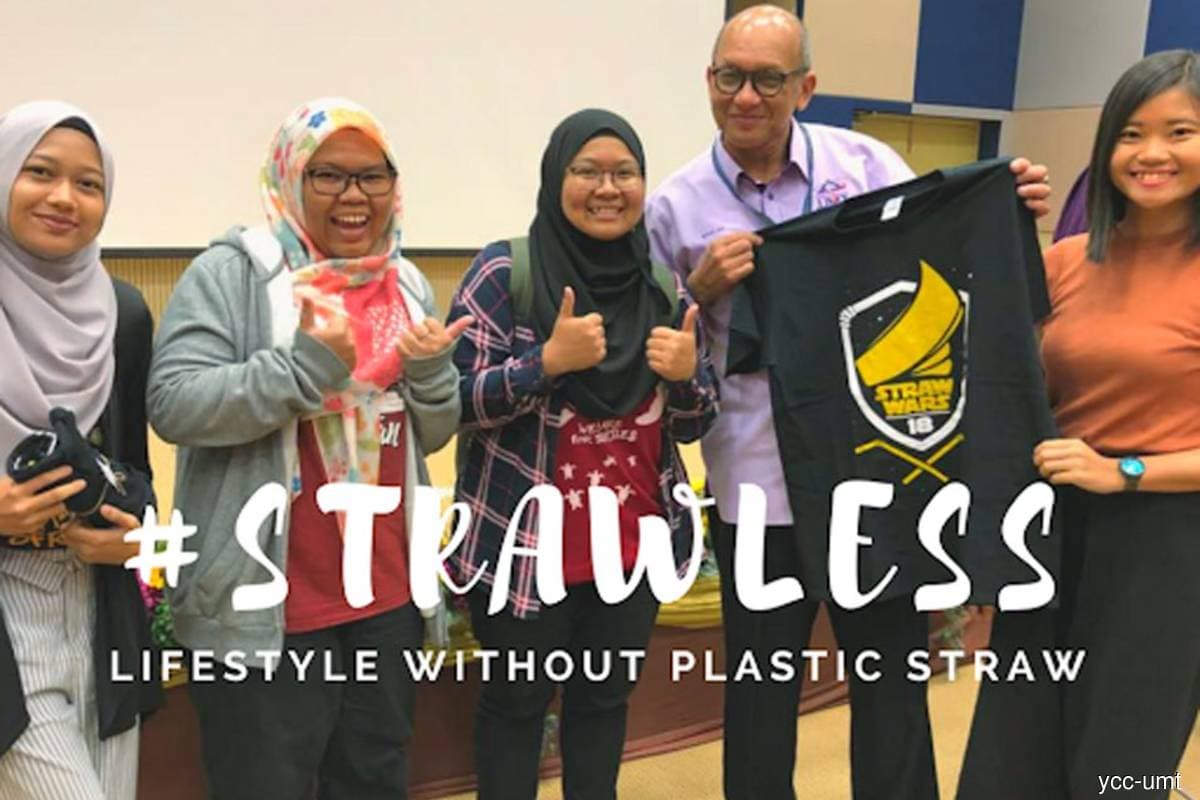
IN recent years, there has been a rise in support for the anti single-use plastic movement due to campaigns emphasising the need to reduce plastic waste and encourage environmentally beneficial behaviours. Globally, the “Say No to Straws” and “Stop Sucking” movements are the best-known of these initiatives. These initiatives seek to inform the public about the harmful effects of littering, particularly with plastic trash.
In Malaysia, one example is the StrawWars campaign started in 2018 by the Young Conservationist Club (YCC) at Universiti Malaysia Terengganu (UMT).
The problem of plastic straws has recently come to the forefront of public discourse due to the increasing awareness of the harm that littering the environment with plastics does to animals and marine ecosystems. The public and the media have taken notice of initiatives to lessen the usage of disposable plastic straws and increase the availability of alternatives. A video clip we saw a few years ago of a plastic straw being removed from a sea turtle’s nostril profoundly affected us.
For some, using straws is just one more example of the larger issue of disposable plastics. Others believe the present movements to reduce plastic straw use are misplaced. Instead, efforts should be made to address other, more significant contributors to plastic pollution, such as consumer goods and packaging. When our student club at UMT mounted a brief campaign to publicise our “Strawless Sunday”, it brought this issue to light. Why on Sunday only? A single day out of the seven days that make up a week.
In my opinion, educating the public is the basis for this movement. Plus, environmental campaigns should be a continuous initiative. Hence, this is the key challenge in keeping up the effort over a long period. To gain more support from our campus community organically, we won’t be strict with anyone and anticipate a somewhat “laid-back campaign” overall. We understand that it will take some time to educate our whole community. Because straw is not something everyone needs, it is unnecessary and avoidable. Hence, let’s start by wearing a campaign t-shirt every Sunday and avoiding straws together. In short, we work at our capacity to educate people.
Next, I thank RHB Islamic Bank for its sea turtle-themed recycled plastic debit card. Speaking for myself, I can already sense the behaviour change in my daily life. Frankly, I feel ashamed to take more plastic from stores when seeing the sea turtle on my debit card. I am now having to give it a lot of thought before deciding whether to take plastic bags upon purchasing anything. I never imagined that a banking entity could also contribute to this campaign. This is an example of what bankers did in their capacity to educate people.
These two examples remind me of the importance of engaging in fruitful dialogue and considering the views of a wide range of stakeholders, as we seek solutions to the problems posed by plastic pollution. We should accept that everyone comes from different backgrounds, perspectives and approaches. Hence, everyone has their own capacity and should act accordingly.
One interesting fact I read recently is that people in Southeast Asian countries are estimated to eat an average of 195,000 pieces of microplastics each year. These microplastics are found in the food and drinks we regularly consume, as reported last year by Dr Hee Yet Yin of the Institute of Oceanography and Environment (Inos) at UMT. Her study also concluded that microplastics are typically created during the storage and cleaning of containers in both on-premises and off-premises catering. This highlights the need to limit our contact with microplastics and switch to more environmentally friendly packaging.
On another note, previously, we understood that microbes could hasten the degradation of visibly floating plastic in our oceans. However, just recently, in January 2023, a study published in the Marine Pollution Bulletin reported that The Royal Netherlands Institute of Sea Research (Nioz) had discovered potentially disastrous side effects from this degradation process. When microbes in the ocean degrade plastic debris, they emit greenhouse gases such as methane and ethylene, which exacerbate global warming. A doctoral candidate at Nioz agreed, saying that microbes are no longer an answer to the plastic soup problem in our oceans.
Finally, environmental protection is critically relevant in today’s world. Every environmental programme relies on education to succeed. People must be taught about the link between waste creation and environmental impact. I admit it is a slow process, but we should trust it. Let’s work at our capacity to make this earth a better place for future generations by encouraging environmentally responsible actions today.
Mohd Uzair Rusli is an associate professor and serves as chief scientist for the Sea Turtle Research Unit (Seatru) of the Institute of Oceanography and Environment, Universiti Malaysia Terengganu (UMT). He is also the founder and advisor of the Young Conservationist Club (YCC) at UMT.


